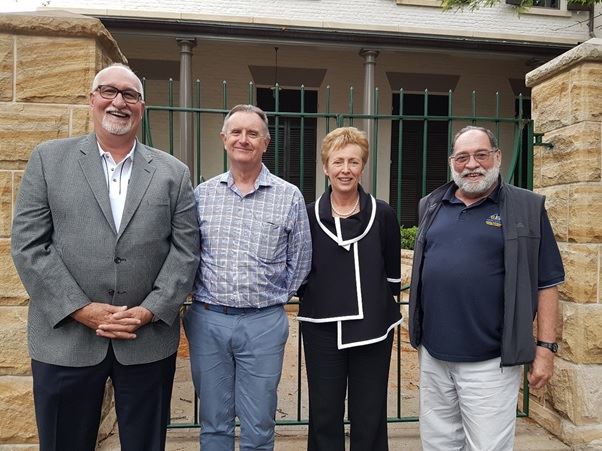Michelle Hill, QIMR Berghofer Medical Research Institute, and The University of Queensland, Australia
On a beautiful sunny November day in Sydney, Australian proteomics practitioners had a first date with pathologists, at The RCPA Introduction to Proteomics in Pathology Course. The one-day course was co-organised by The Royal College of Pathologists of Australasia (RCPA) and The Human Proteome Organisation (HUPO), and included 17 invited lectures.
The 59 delegates from pathology services, industry, universities and research institutes across Australia crowded The RCPA Professor Alan BP Ng Education Centre in Sydney. Following opening remarks by Associate Professor Peter Stewart (RCPA, organising committee), Professor Mark Baker outlined the Human Proteome Project, and Professor Marc Wilkins gave a lecture on the Principles of Proteomic Methodologies. Perhaps not unexpected, the cancer proteomics was featured in several lectures, including applications in cancer diagnostics (Associate Professor Rosemary Balleine), treatment decisions (Professor Roger Reddell), ProCan Program (Dr Peter Hains), as well as approaches to biomarker discovery (Professor Peter Hoffmann, Associate Professor Michelle Hill, Dr Charlie Ahn). Other topics included Quality Assured Big Data in Pathology (Associate Professor Tony Badrick), Bioinformatics Data Analysis (Professor Terry Speed), Pediome (Associate Professor Vera Ignjatovic), Microbiome (Dr Adam Rainczuk), Cardiovascular Disease (Dr Melanie White), and Personalised Medicine (Professor Ed Nice). The day concluded with panel discussion and drinks mixer.
The enthusiasm was palpable, with the day being literally the first introduction to proteomics for most of the RCPA members attending the course. Robust discussions ensued on the analytical methods and quality assurance aspects of proteomic technologies, in comparison to pathology standards. With delegates showing a strong interest in marrying proteomics with pathology, it will not be surprising to see some second dates and success stories in the near future. Indeed, the upcoming Australian Association of Clinical Biochemists (AACB) joint Course ‘Assessing the Value of Biomarkers’ with European Federation of Clinical Chemistry and Laboratory Medicine is a timely follow-up opportunity to foster the relationship between proteomic biomarker researchers and clinical implementation.
A personal highlight for me was meeting some of the (satisfied) clinicians who have submitted samples to the Princess Alexandra Hospital Amyloidosis Centre (https://metrosouth.health.qld.gov.au/amyloidosis-centre) for proteomic typing of amyloidosis. While we recently published the results of our 5-year study (https://www.ncbi.nlm.nih.gov/pmc/articles/PMC5081679/), it is not often that the scientists come face to face with end-users. At the end of a stimulating day, I head home on the late flight with renewed purpose and optimism for clinical applications of proteomics.


PHOTO credit, The Royal College of Pathologists of Australasia (RCPA). Organizing committee for The Introduction to Proteomics in Pathology Course. From left to right, Prof Mark Baker (HUPO), A/Prof Peter Stewart (RCPA), Prof Rita Horvath (RCPA), Prof Ed Nice (HUPO).


.png)